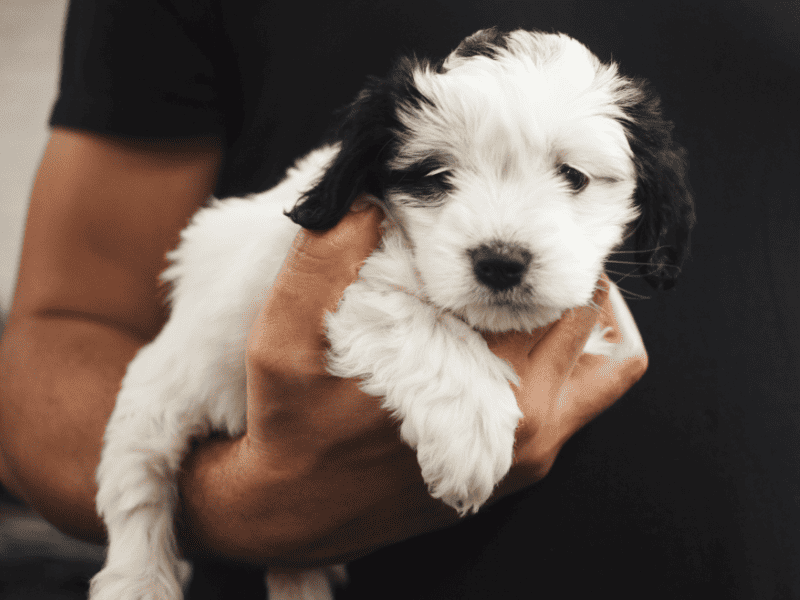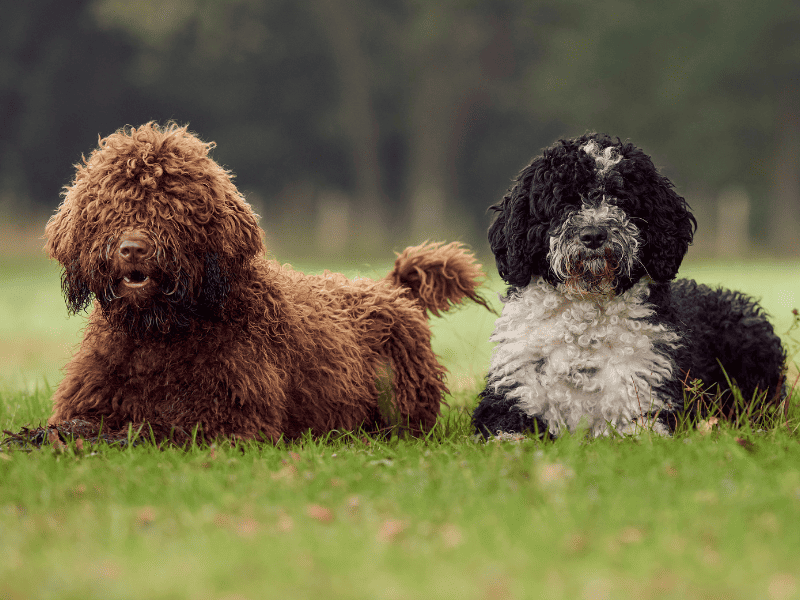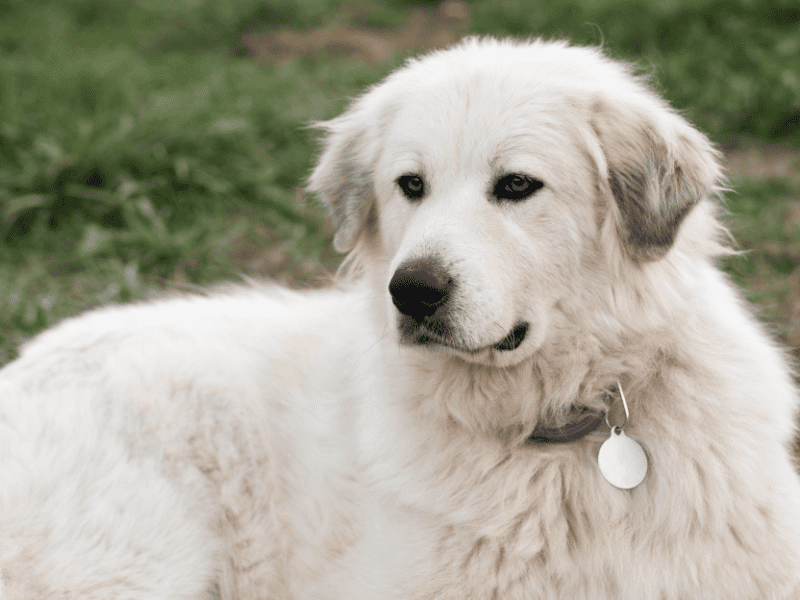Owning big dogs comes with big responsibilities. Large dog breeds require different nutritional needs than that of their small breed counterparts. For instance, big dog breeds are more prone to joint disease such as arthritis, so looking for a food that includes glucosamine can help support their joint health, according to professional dog trainer Steffi Trott.

What Can Large Dog Breeds Eat?
Large dog breeds require a nutrient-dense diet. Large dogs should eat a mix of protein, carbohydrates, and healthy fats each day to give them the energy they need to grow big and strong. Large breed puppies also need special dietary considerations.
When looking for the best food for your big pup, try to find one with plenty of protein and lower in fat. Large breed puppies need more calories than smaller dogs, especially if they are active. Added calcium is also not recommended for large breeds, as this can lead to skeletal abnormalities. Large breed puppy food should be formulated with the unique nutritional needs of big dogs in mind.
Best Large Dog Breeds Food: Puppy

Big dog puppies grow much faster than smaller dogs, so their food intake needs to be carefully monitored. A dog that weighs one pound when they are born can reach up 150 pounds in 18 months! If you catch any signs of nutrient imbalance or caloric excesses early enough on with your large-breed pup then this growth rate shouldn’t pose too many problems but if not? Well my friend – things could get ugly real fast! If your pup grows too fast, they will be at risk of getting these orthopedic diseases:
- Hypertrophic osteodystrophy
- Osteochondrosis
- Retained ulnar cartilage core
- Hip or elbow dysplasia
In general, the diet for large breed puppies should be lower in fat, calcium, phosphorus and vitamin D. Limiting caloric intake is also crucial because it helps slow down growth rate and reduces their risk of developing orthopedic diseases.
Best Foods for Adult Big Dog Breeds

Prevention is key when it comes to big dog breeds. Monitoring diet and exercise can make sure they maintain a healthy weight to prevent joint problems like osteoarthritis. Some adult dog food formulas include supplements like glucosamine for extra orthopedic support.
Steffi also noted that large breed dog owners should ensure the food is AAFCO regulated, as this will mean the food is balanced, so they will be getting between the minimum or maximum daily requirements of nutrients required.
Foods That Are Dangerous for Your Big Dog Breeds
Regardless of the size and breed of your dog, it is important to know what foods are toxic to dogs and avoid them.
- Grapes and raisins – These can cause kidney failure in dogs. Large breed puppies are more susceptible to this, but all dogs should avoid grapes and raisins.
- Chocolates – Chocolate contains caffeine and theobromine which are highly poisonous to dogs.
- Raw bread dough. Yeast found in raw bread dough expands and can cause a big problem for dogs who ingest it, making their stomachs blow up.
- Onions and garlic – Large breed puppies are also more sensitive to the effects of these two. Large breeds also have a higher risk of developing hemolytic anemia if they eat onions or garlic.
Contributor | Steffi Trott
Steffi is a dog trainer at SpiritDog Training. She is an energizer bunny who loves everything related to animals, the outdoors and – of course – training!
ALSO READ:


